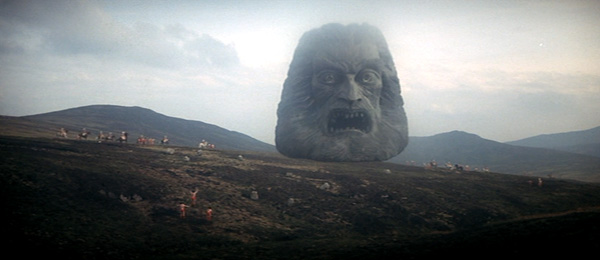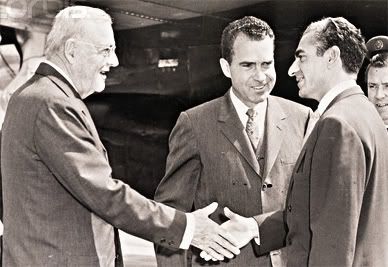Benjamin Franklin
"Angel left wing, right wing, broken wing"
Kurt Cobain
Joe Lieberman is a douchebag. I don't believe that statement is particularly earth-shattering, revelatory or even controversial at this point in time, it's just a statement of fact. The only real question regarding his douchebaggery is what type of douchebag is Joe Lieberman? I think it's a legitimate question whose answer reveals more about us than it does about Joe Lieberman. But I'm getting ahead of myself. Here's the latest news on the sniveling weasel:
WSJ Blogs
Washington Wire
Political Insight and Analysis From The Wall Street Journal's Capital Bureau
Lieberman Dismisses Concerns Over Internet Bill
By Deborah Solomon
Sen. Joseph Lieberman rejected as “misinformation” concerns raised by critics that he would want the U.S. to be able to shut down the Internet, but stressed that in “times of war” the U.S. needed more power over U.S. cyberspace.
Lieberman (I., Conn.) is a co-sponsor of a bipartisan bill introduced in the Senate last week that would give the president authority to implement “short-term emergency measures” to protect U.S. Internet networks from attack.
snip....
Lieberman said the Internet was “constantly being probed by other countries for weaknesses and that “we need the capacity for the president to say to an Internet service provider, ‘We’ve got to disconnect the American Internet from all traffic coming in from this country.’”
He cited China, which has long been criticized for its Internet censorship, as an example. “Right now, China can disconnect parts of its Internet in times of war. We need to be able to do that too.”
http://blogs.wsj.com/washwire/2010/06/20/lieberman-dismisses-concerns-over-internet-bill/
Now my knee jerk reaction to reading this was certainly revulsion, but I was by no means surprised. Such a proposal is par for the course in Lieberman's political career. But what caught my attention was the reference to the government of China as an example the United States should emulate. At first glance, it seems like Joementum is off in political no-man's land. Nobody likes the government of China! Well, nobody outside of the bureaucrats, technocrats and other assorted parasites of the Deep Political landscape that financially profit off their tyranny. The Right hates them for being run by the Communist Party. The Left hates them for their fascist policies. So where does that place Lieberman for lauding them? On the Right or on the Left?
I believe the answer to that question is the same answer to the question regarding the true ideological nature of China. Are they Communist or are they Fascist? Someone asked that question in a nuanced, detailed, probing manner at answers.yahoo.com. The answer sounds kind of smart-assed, but it's to the point:
Isn't China more "Fascist" than "Communist" now?
Since China's accession to the WTO, it has embraced corporatism, while it still is an expansionist power -- whether or not it is expansionist cannot be debated; China still retains its colonies of Tibet, Xinjiang, Inner Mongolia, and Manchuria, as well as aggression against countries around the South China Sea, and its on-going building of a military far more powerful than any other military in the East Asian region, and even rivals US power in the region. As I understand it, a loose definition of Fascism is the combination of authoritarian rule and corporatism. Also, main tenet of Fascism, I believe, is aggressive expansionism, or at least military preparedness. On the other hand, "Communism," while still authoritarian, should shun corporatism, even attempt to abolish money altogether, and it's ultimate goal (in un-corrupted form) is to reach a state of permanent peace. It seems to me that China has swung more to the side of Fascism than of Communism. China doesn't even have strong social programs (socialism emphasizes social welfare programs and is a close cousin of communism) -- even America has free K-12 education! (China used to have free pre-college education, but now the people must pay for it.) So, shouldn't the "Chinese Communist Party" (CCP) change its name to the "Chinese Fascist Party" (CFP) ? I would like to know if this has occurred to other people, or am I dead wrong and don't know anything?
Best Answer - Chosen by Voters
Yes. That's correct. What they call themselves is really irrelevant.Source(s): http://answers.yahoo.com/question/index;_ylt=AmfidPQyqtQAwQepKSsD66Pty6IX;_ylv=3?qid=20090524080851AA4gh2Y
Got that? The label is irrelevant! I believe the rationale behind that is the same regarding the ideological orientation of Joe Lieberman. Perhaps that's why as much as I openly despise the man, I must admit a grudging respect for how he singlehandedly has shown the irrelevance of partisan affiliation by ditching the Democratic Party. But regarding the question of ideology, it's irrelevant whether Joe Lieberman is a conservative or liberal, right-wing douchebag or a left-wing douchebag. Right-wing and left-wing are artificial constructs dating back to the French Revolution. America, can we stop being French, for fraks sake?! Seriously, even the modern definitions of the terms as specified by Wikipedia seem insidiously archaic from my perspective:
Left–right politics
From Wikipedia, the free encyclopedia
The left–right political spectrum is a common way of classifying political positions, political ideologies, or political parties along a one-dimensional political spectrum. The perspective of Left vs. Right is a broad, dialectical interpretation of complex questions. Left-wing politics and right-wing politics are often presented as polar opposites, and although a particular individual or party may take a left-wing stance on one matter and a right-wing stance on another, the terms left and right are commonly used as if they described two globally opposed political families. In France, where the terms originated, the Left is called "the party of movement" and the Right "the party of order".[1]
Traditionally, the Left includes progressives, social liberals, social democrats, socialists, communists and anarchists.[2][3][4][5] The Right includes conservatives, reactionaries, monarchists, nationalists and fascists.[6]
The terms left and right are often used to spin a particular point of view rather than as simple descriptors. In modern political rhetoric, those on the Left typically emphasize their support for working people and accuse the Right of supporting the interests of the upper class, whereas those on the Right usually emphasize their support for individualism and accuse the Left of supporting collectivism. As a result, arguments about the way the words should be used often displace arguments about policy by raising emotional prejudice against a preconceived notion of what the terms mean.[7]
http://en.wikipedia.org/wiki/Left%E2%80%93right_politics
Thanks for the clarification, wikipedia! So is Joe Lieberman an individualistic douchebag for his self-proclaimed "Independent" affiliation? Or is he a collectivistic douchebag for proposing a policy to make our "national security" more reflective of the way China runs their people under a microscope?
This is a tough nut for me to crack on a personal level, not because ideology confounds me, but because my life has always been so entrenched in it. I grew up in a household that was Republican in name but was primarily conservative in orientation more through Catholicism, which shaped our political perspective. But my opposition to our wars of choice abroad and political oppression at home altered my perspective. I suppose it would be very easy for someone to look above at how the left-right political spectrum is delineated, then look at me and slap the label "Left" on me.
But right now, my perspective is that we're standing at the crossroads of a tectonic historical shift where our global economic infrastructure predicated on infinite growth is colliding with the diminishing returns of finite energy. It's a colossal concept to wrap your head around, and even if you do wrap your head around it as I have, it's really hard to retain an understanding of the full implications of the future we face, especially when the government, the mainstream media and all other prominent facets of our culture keep telling us that everything will be fine, i.e. the Infinite Growth Paradigm is still under control, situation normal. But when I do retain my understanding of this tectonic shift, I see these labels for their irrelevance, I see this spectrum for its archaic quaintness. You can see it now in the character of people you know; I've met many "conservatives" who strongly support the rights of working people and I've met many "liberals" who strongly support individualism. But once the reality that infinite growth on a finite planet is no longer possible becomes undeniable and our primary societal concern will be the production and transportation of food, that spectrum won't matter. I believe the political dichotomy will shift to a struggle between the forces of Justice: those who are trying to help the greatest number of people survive, and Tyranny: those who are trying to limit the number of survivors in a vain attempt to sustain the unsustainable.

So there you have it. Joe Lieberman is a Tyrannical Douchebag!








